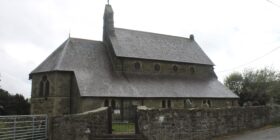UK Parliament dissolves ahead of July general election

The UK Parliament is officially dissolved today, Thursday, 30 May 2024, marking the end of all parliamentary business in both the House of Commons and the House of Lords.
The dissolution leaves every seat in the Commons vacant until after the general election on 4 July 2024.
Dissolution, the formal term for ending a Parliament, is mandated by law to occur at least every five years, prompting a general election to elect a new Parliament. With the dissolution, all MPs cease to represent their constituencies and must vacate their offices, although they are permitted to return briefly to clear their personal effects.
The Speaker of the House of Commons, like all MPs, loses their seat upon dissolution but will stand for re-election under the designation ‘Speaker seeking re-election’. Despite the dissolution, the Speaker retains management responsibilities for the Commons until a new Speaker is elected.
While members of the House of Lords, who are appointed rather than elected, retain their positions, all business in the Lords also comes to a halt with the dissolution.
Government Operations Continue
Despite the dissolution of Parliament, the government remains operational. Government ministers continue to lead their respective departments as their roles are distinct from their positions as MPs. However, they are restricted from using the title MP during this period.
Pre-Election Period Rules
The pre-election period, also known as ‘purdah,’ imposes specific rules on the conduct of government business to ensure fairness and transparency during the election campaign. Civil servants receive guidance to navigate this period appropriately.
Local authorities, such as Flintshire Council, have also entered the pre-election period, marked by specific communication restrictions aimed at ensuring fairness and impartiality. This period, triggered by the publication of a notice of election, comes with detailed guidance on permissible activities and communications.
The Code of Recommended Practice
The Code of Recommended Practice on Local Authority Publicity 2011 outlines seven principles to guide communications during this sensitive period. These principles ensure that all activities are lawful, cost-effective, objective, even-handed, appropriate, considerate of equality and diversity, and carefully managed during heightened sensitivity periods.
Key Restrictions and Permissible Actions
Local authorities are not required to halt all communications but must adhere to certain restrictions. Essential functions, such as disseminating factual election information, can continue. However, councils must avoid any publicity that might be seen as influencing voters. This includes avoiding politically controversial topics, refraining from mentioning individual candidates or parties in press releases, and not arranging media events involving candidates.
Paid-for advertising must comply with the Advertising Standards Authority’s Advertising Codes, ensuring that all publicity is balanced and factually accurate. Political advertising on television or radio remains prohibited by law.
Legal Framework and Official Guidance
The pre-election restrictions are governed by Section 2 of the Local Government Act 1986, amended in 1988. This law stipulates that councils should not publish material designed to influence public support for a political party. Councils are also advised to suspend third-party material hosting or close public forums likely to breach the recommended practices.
Local authorities can continue regular business activities, such as budget consultations and planning application determinations, even if they are controversial. However, launching new campaigns or consultations that might be politically sensitive should be avoided unless legally mandated.
Ensuring Fairness and Reasonability
A guiding principle for councils during this period is to ensure that all actions are fair and reasonable in the public eye and among election candidates. Councils should always consider whether their actions could be perceived as using public money to influence the election outcome.
For more detailed information, local authorities are encouraged to consult their Returning Officer or Monitoring Officer and refer to the Code of Recommended Practice. Ensuring compliance with these guidelines is crucial to maintaining public trust and the integrity of the electoral process.
| 2024 election timetable | ||||
|---|---|---|---|---|
| Day | Event | Date | Day | |
| 0 | Dissolution of Parliament and return of writs | 30-May | Thursday | |
| 1 | Returning officers receive writs | 31-May | Friday | |
| 2 | 03-June | Monday | ||
| 3 | Last day for publishing notice of election (by 4pm) | 04-June | Tuesday | |
| 4 | 05-June | Thursday | ||
| 5 | 06-June | Friday | ||
| 6 | Deadline for submitting or withdrawing a nomination (4pm) Publication of statement of persons nominated (5pm) |
07-June | Friday | |
| 7 | 10-June | Monday | ||
| 8 | 11-June | Tuesday | ||
| 9 | 12-June | Wednesday | ||
| 10 | 13-June | Thursday | ||
| 11 | 14-June | Friday | ||
| 12 | 17-June | Monday | ||
| 13 | Deadline to register to vote (by midnight) | 18-June | Tuesday | |
| 14 | Deadline for new postal vote applicants or amending existing absent voting arrangements | 19-June | Wednesday | |
| 15 | 20-June | Thursday | ||
| 16 | 21-June | Friday | ||
| 17 | 24-June | Monday | ||
| 18 | 25-June | Tuesday | ||
| 19 | Deadline for new applications to vote by proxy (5pm). After 5pm it may be possible to apply for an emergency proxy in certain circumstances, but they are not available on demand. Deadline for applications for voter authority certificates (VACs, by 5pm) |
26-June | Wednesday | |
| 20 | 27-June | Thursday | ||
| 21 | First day voters can apply for a replacement for a lost postal vote | 28-June | Friday | |
| 22 | 01-July | Monday | ||
| 23 | 02-July | Tuesday | ||
| 24 | 03-July | Wednesday | ||
| 25 | Polling day – 7am to 10pm Deadline for emergency proxy applications (5pm) Deadline for re-issue of spoilt or lost postal votes (5pm) Deadline for production of temporary VACs (10pm) |
04-July | Thursday | |
Latest News









